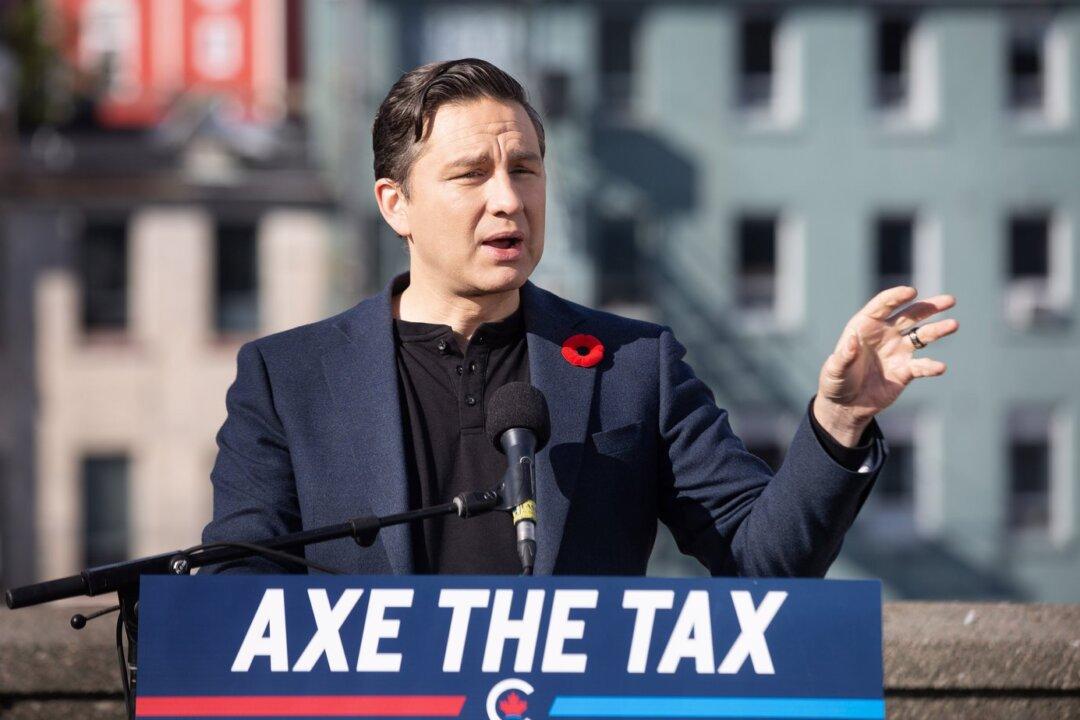A war of words has ensued between Pierre Poilievre and David Eby after the B.C. premier scoffed at the Conservative leader’s request for him to join the other provinces in protesting the upcoming carbon tax hike.
“I don’t live in the Pierre Poilievre campaign office and baloney factory, I live in British Columbia,” Mr. Eby told reporters at a news conference March 15, referencing a letter he received from the Tory leader asking him to join other premiers in opposing the April 1 carbon pricing increase.





